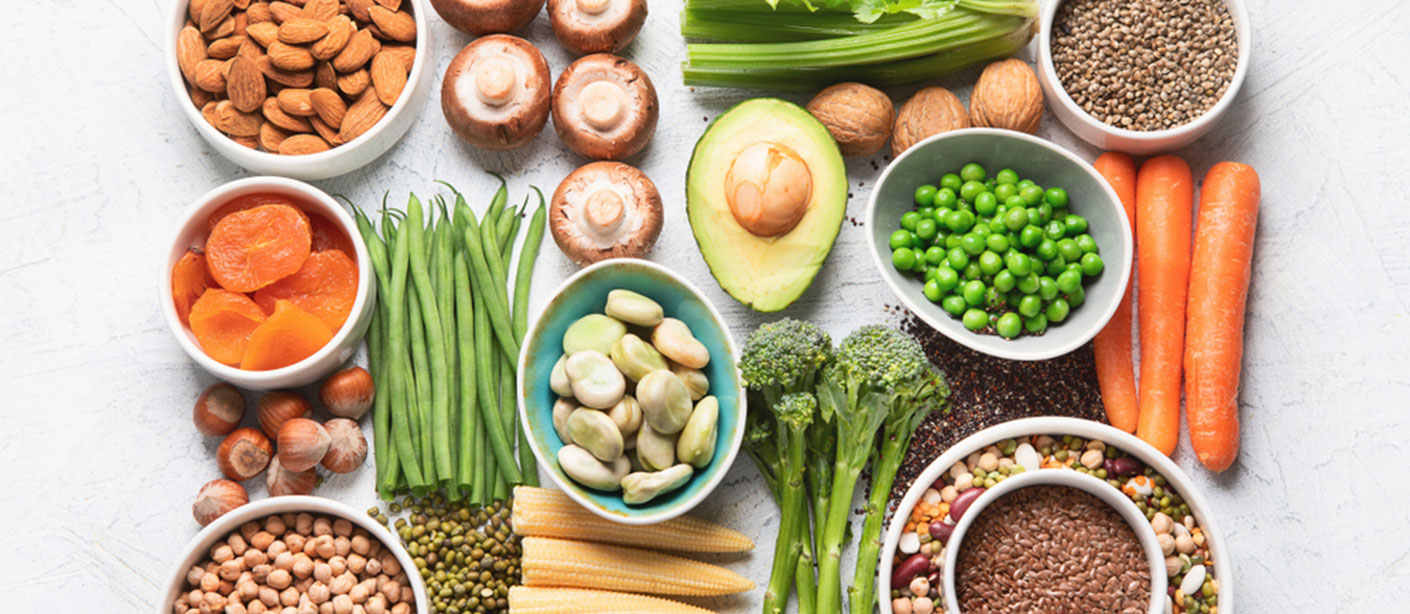What Are the Most Common (and Best) Sources of Plant Protein?
Believe it or not, many plant-based foods offer good sources of protein. Not only are soy products like tofu or tempeh a good source of protein, but this macronutrient is also available in beans, whole grains, nuts, seeds, legumes and even some vegetables.
It's important to note that plants have lower amounts of protein than animal sources and they tend to be less calorie dense — so you may need to eat more to meet your daily needs. For this reason, individuals have increasingly been turning to specialized products to ensure they get the amount of protein they need to feel their best.
"It has now become much easier for consumers to boost intake of plant proteins via the availability of multiple plant-based protein concentrates (soy, pea, canola, potato, fava, etc.) in the food industry," said Steven Hertzler, Ph.D., RD, senior scientist of clinical research with Abbott's Global Scientific and Medical Affairs team, in a review article in Nutrients. "Plant protein isolates and concentrates, which often contain 80 percent or more protein by weight, make it possible to consume 10–20 grams or more of plant-based protein per one serving of a ready-to-drink shake or powder mix."
For example, Ensure® Plant-Based nutrition shakes combine fava bean protein isolate with pea protein concentrate to create a no-dairy, vegan shake that has 20 grams of plant-based protein and 180 calories. This is an easy and convenient way to take advantage of the nutritional benefits of protein without having to significantly alter your routine diet.
The Health Benefits of Plant Protein
The health benefits offered by plant protein are just one reason why plant-based diets are growing in popularity. Research has pointed to several health advantages:
- Improved heart health: An article in the Journal of the American Heart Association described a systematic review and meta-analysis of more than 100 studies and concluded that people who substitute plant protein for animal protein typically have lower indicators for cardiovascular disease.
- Reduced risk of obesity: An observational study of more than 1,800 European adolescents published in Nutrition Journal found a link between total animal protein intake and obese adolescents. In addition, the adolescents that consumed higher levels of plant protein had lower body fat percentages and BMIs compared with those adolescents with higher animal protein intake.
- Lower rate of mortality: A report published in JAMA Internal Medicine observed that plant protein intake was inversely associated with all-cause mortality after following over 400,000 people aged 50-71 for more than 15 years. Additionally, it was suggested that plant protein helped reduce mortality from cardiovascular disease in both males and females. Researchers concluded that replacing just 3% of animal protein with plant protein was associated with a 10 percent reduction in overall mortality in both men and women.



